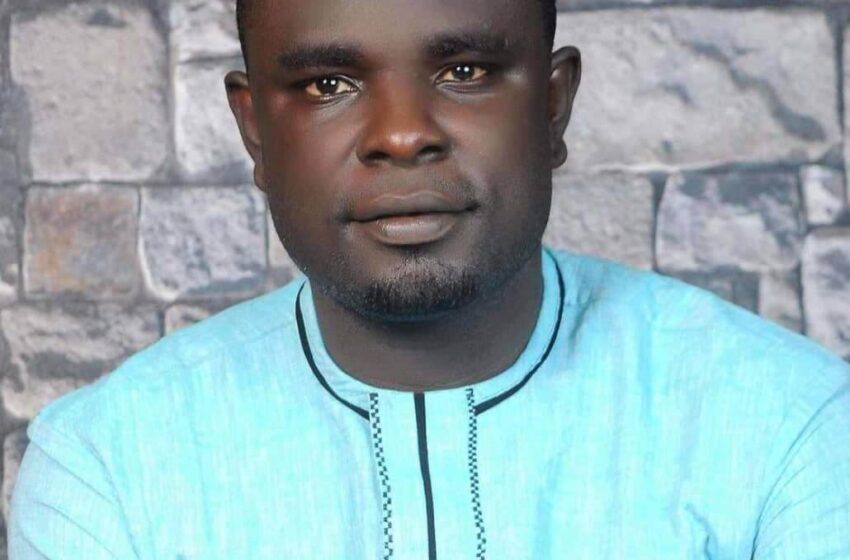Meet Kingsley Ugwuanyi, scholar who inspired addition of 29 Nigerian words into Oxford Dictionary

Here comes Kingsley Ugwuanyi, a researcher per excellence and one of the brains behind the addition of 29 Nigerian expressions into the Oxford English Dictionary (OED).
Since his recent feat, the English scholar and consultant has been drawing commendations of several Nigerians–online and offline.
Thank you @KingsUgwuanyi for your advice on Nigerian English usage and pronunciation, as well as Igbo and Nigerian Pidgin English etymologies.
And thank you to @kolatubosun, for your advice on Yoruba etymologies.
— The OED (@OED) January 28, 2020
In this chat with CRISPNG, Ugwuanyi, a lecturer at the University of Nigeria, Nsukka, talks about the worsening state of research in the country and urgent need to fix the situation.
Tell us more about yourself
My name is Kingsley Ugwuanyi, and I teach English at the University of Nigeria, Nsukka, Enugu State, Nigeria. I have my BA and Master’s in English language from the same university. Presently, I’m completing my doctoral studies at Northumbria University, Newcastle upon Tyne, United Kingdom. My doctoral research focuses on Nigerian English. I consult for Oxford Dictionaries on their Nigerian English project. I also translated for Oxford Dictionary for their English-Igbo Bilingual Dictionary, which is part of Oxford Global Languages (OGL) Project. I’m also a professional editor/copyeditor.
What’s your assessment of research in Nigeria?
It is no longer news that the culture of research in Nigeria has taken a nosedive. I mean, things have gone from bad to worse. Don’t get me wrong, there are still Nigerian researchers based in Nigeria who take the pain to conduct excellent research. But I fear they are in the minority. Sometimes I am torn between determining whether the blame lies with the lazy researchers or with the lack the tools to conduct good research. I think it’s the two—and many more factors. But were the tools fully provided, we would’ve known it’s entirely the workman’s failure. We know also that the attitudes of many people who are supposedly researchers are terrible. I’ve been teaching in a Nigerian university for some years now and I can tell you that there are many (they may be in the majority) who have no business being in the university. Most of them are simply after money. It’s so bad that some of them pay people to do research for them. It’s that bad! Prosperous nations are driven by research output. If we fail to sit up as a country and take research seriously, the future might elude us.
Nigerian English Words in Oxford Dictionaries: My Role as the Consultant
Short #thread
I’m extremely pleased to be part of the project which saw the inclusion of 29 Nigerian English words in Oxford Dictionaries. I’m all the more pleased with the reception, especially in Nigeria
— Kingsley Ugwuanyi, PhD (@KingsUgwuanyi) January 26, 2020
In Nigeria, several researches and recommendations are coming out of various institutions and research organisations, yet the nation still remains at the crossroads. Do you think these researches lack quality or our government simply doesn’t value them?
It’s both. There are some research publications I see and I just laugh. Empty! But as I said before, there are many Nigerian researchers who’ve made remarkable impacts in their fields and are recognised/cited internationally. We have to acknowledge that. However, in more developed countries, there is an interaction between what researchers produce in the universities and what industries and governments do. But that’s hardly the case in Nigeria. For example, I know there’s a great deal of research on language education policy in Nigeria with wide-ranging recommendations regarding how the current policy and practices can be improved. But you can sure that the policy makers know next to nothing about them. So it’s a two-way thing.
If we fail to sit up as a country and take research seriously, the future might elude us.
Let’s look at our educational policies, what and what do you think Nigeria needs to get it right with education?
A lot. A lot needs to be done. Nigerian educational system needs a radical revamping. Our educational system, to a large degree, still mirrors the UK system bequeathed to us during colonisation. Much of it has remained unchanged. There’s a lot of research evidence about how the system can be improved. Again this tells you how much there’s a disconnect between research and policy. Our educational system needs to be directed towards our needs as a country. First, education should be conceived as every Nigerian’s right. Everybody should get at least basic education. That’s how to begin. There is also evidence that employers say that most Nigerian graduates have head knowledge but lack hands-on skills. So another possible direction is to have a skills-based education. Teach people what they can relate with in their daily lives. For instance, WAEC, NECO and JAMB keep testing (and failing) students in what they call Oral English, which is way too removed from the daily realities of these students. We can go on and one, but let me stop here.

